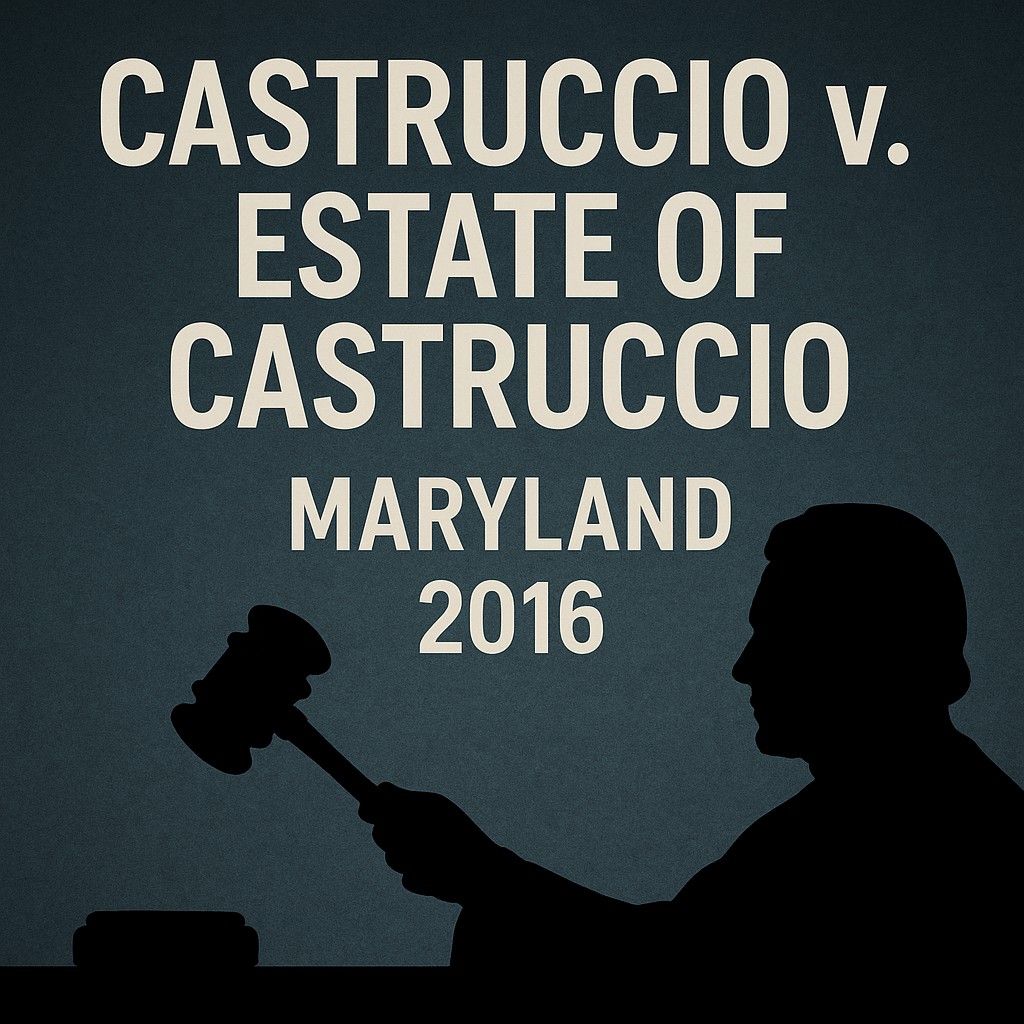When people realize that they may inherit far less than what they anticipated, or that they may not inherit anything at all, almost any argument begins to seem valid, no matter how hollow or silly that argument may seem on the surface. Like family law, estate law sees some of the most absurd arguments put forth. When spouses divorce, this separation often triggers powerful emotions, and those emotions frequently attach themselves to arguments and positions which are counterintuitive or inane. Similarly, when someone learns that he or she isn’t a beneficiary, or is a beneficiary in a much smaller capacity than what was expected, this can also trigger powerful emotions which end up leading to all sorts of implausible arguments and untenable positions.
Back in 2016, a case came before the Maryland Court of Special Appeals which had a rather silly bit of reasoning. But, nonetheless, because the estate held considerable value, this silly reasoning was seen as something worthy of attention. Let’s look at the case of Castruccio v. Estate of Castruccio (2016) in detail so we can see the types of arguments which come up when substantial sums are at stake.
Facts of the Case
The estate in this case belonged to Dr. Peter A. Castruccio, a well-known and successful physician who accumulated substantial assets before passing away at age 89. The estate included businesses, and also multiple pieces of income producing real estate. In 2010, Dr. Castruccio executed a will which was intended to supersede all prior wills and codicils. In this 2010 will, Dr. Castruccio left a sum of money to his longtime employee, and everything else to his widow. But, the 2010 will included an important contingency: if Dr. Castruccio’s widow failed to develop her own will prior to Dr. Castruccio’s passing, then she would receive nothing, and then remainder of the estate would be left to the same employee.
When Dr. Castruccio passed away, his wife hadn’t yet developed and executed her own last will and testament. Dr. Castruccio’s estate lawyer interpreted this to mean that she stood to inherit nothing, and proceeded to carry out the will according to that interpretation. The will was admitted to probate and sent to the Orphan’s Court. Dr. Castruccio’s widow came up with an objection: relying on a case from 1921, Shane v. Wooley, she argued that, because the signatures of witnesses were not on the same page as Dr. Castruccio’s, and were not “physically connected” to the page which contained Dr. Castruccio’s signature, the witness signatures were invalid. If her argument succeeded, this would mean that the 2010 will had been executed improperly and be declared invalid.
The estate filed a motion for summary judgment which was opposed by the widow. The estate was successful in its motion, and the widow then appealed the judgment.
Ruling & Post-Ruling Discussion
On review, the appellate division affirmed the judgment. Although the Shane v. Wooley (1921) case did find that a one-page will was invalidated because the witnesses’ signatures were on a separate page which was wholly disconnected from the will itself, the appellate court was not persuaded that the reasoning of this case should extend and encompass the present example. The appellate court reviewed the circuit court’s reasoning, and concurred that Dr. Castruccio had incorrectly extrapolated the reasoning from the Shane case. In determining whether a will has been “properly attested to,” which is all that the relevant statute requires, the inquiry is to be more holistic, not a bright line rule supposedly laid out by Shane. In this case, although the pages may not have been stapled together or physically connected, the pages of the will were numbered 1-6, with the testator’s signature on the fifth page and the remaining signatures on the sixth page. Thus, it was clear based on how the will was structured and developed that the witnesses did in fact sign in the presence of the testator, as the statute demands.
Contact the Murphy Law Firm for Additional Information
To learn more about challenging signature validity in a will, witness requirements for wills, signature requirements for wills, appointing a personal representative, or any other related estate planning topic, contact one of the estate planning attorneys at the Murphy Law Firm today by calling 240-219-1187.







.webp)











